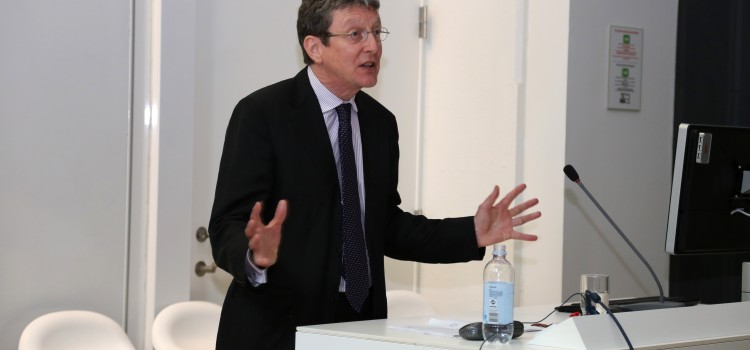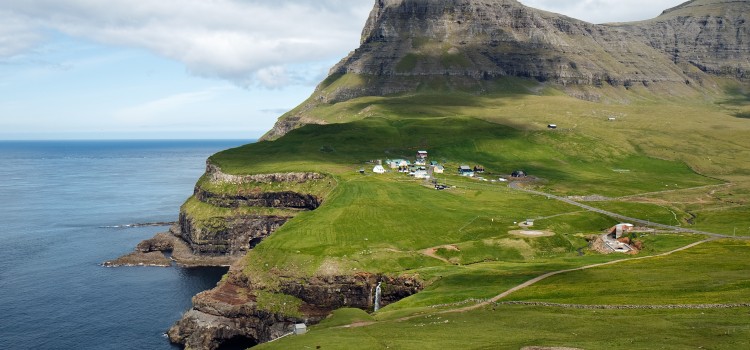By Jeremy Moon, Velux Professor of Corporate Sustainability, CBS —
The relationship between corporate governance (CG) and Corporate Social Responsibility (CSR) is a vexed, yet a vital, one for each of these regulatory logics. Accordingly, it is a key issue for the business of society.
It seems to me that CSR and CG are not the same thing; nor different things; nor the other side of the same coin. Rather, they are overlapping; inter-related; potentially mutually tempering or reinforcing. CG emphasizes external regulation and internal control of the firm by legal means and assumes that the monitoring function is controlled by the board of directors and senior managers. CSR is about how the firm regulates its own behavior with reference to social norms; now including external, mainly ‘soft’, governance systems (e.g. multi-actor, private codes of conducts, commitments, partnerships, associations). Yet CG is often at odds with, or pitted against, CSR, notwithstanding their overlaps. This is true in all business systems, but particularly in the Anglo—American systems.
Here CSR is sometimes seen as a threat to the agent-principal relationship in which the ‘agents’ (managers) should simply serve the assumed priority of their ‘principals’ (shareholders) for short-run profits. But it seems to me that the agent-principal relationship is itself misguided and misrepresents proper governance of the company. In short, key corporate governance documents, company law, other regulations pertaining to company responsibility and judicial history confirm that companies do have wider purposes than shareholder’s quarterly profits alone. The interests of the company itself, of other stakeholders and of society at large have been recognized as appropriate points of managers’ responsibility. Moreover, there is plenty of evidence that not all shareholders are motivated by quarterly returns. Many prize long-term stability, and many recognized the company benefits of CSR investments, not least in the face of social and environmental risks. The voluminous literature on the relationship between financial and social performance finds a modestly positive relationship between the two. So, I conclude that CSR and CG in Anglo-American systems are not incompatible.
Indeed they are related as many of the CSR innovations in these countries tend to be more likely to reflect market actors and imperatives than CSR in say continental and Scandinavian Europe. For example, many UK and US CSR initiatives reflect consumer concerns (e.g. fair and ethical trade systems) or investor interests (e.g. the FTSE4Good and Dow Jones Sustainability Indexes, the new stock exchange regulations of the Sarbanes-Oxely and Dodd-Frank Acts). This contrasts with the CG – CSR links in coordinated market economies (e.g. Denmark, Germany) which yield both greater attention to the labour stakeholders and the collective interest in environmental sustainability. It also contrasts with the CSR in state-led market economies (e.g. France, Korea) which tend to reflect a CG focus on national development. It contrasts with CSR in emerging and developing economies which tends to reflect a community orientation reflecting the features of high inter-personal trust and low institutional trust underlying the CG arrangements in many such countries.
But notwithstanding the ways in which CSR has emerged as a feature of business as usual complementary with their respective CG systems, it seems to me that there are often deficits in company level governance of CSR. CSR is often removed from ‘governance’ departments (in HR, marketing); apart from main business (e.g. financial institutions & crisis); CSR accounting is often in parallel with, rather than integrated with, other management accounting; and there is little measurement of social impacts.
However, CSR commitments increase the imperatives for more conspicuous governance of sourcing, contracts, production, employment, wastes, consumption and so forth. The challenges here are considerable, including the integration of CG measures for CSR across MNCs whose business units operate under very different CG systems; and particularly for SMEs in emerging and developing countries which have underdeveloped CG systems to start with.
But CSR does not only reflect CG structures it can also shape them. Thus the fact that an increasing number of companies now fall under new reporting requirements such as come with stock exchange listing (e.g. in the USA, South Africa, China), or with operation in business systems which specify responsibility requirements (e.g. Danish and Swedish non-financial reporting regulations, UK board responsibilities for their companies environmental, social and governance impacts), or sign up to CSR principles and standards should be regarded as a CG opportunity as well as a challenge. These developments provide precisely the opportunity for CG to reconnect and support its underlying base in social responsibility.
This blog entry is based on a talk I gave on ‘CSR and corporate governance’ at the workshop on ‘Governance, CSR and SMEs in emerging/developing economies’ in the ESRC ‘CSR and SME’ series on 19th November, 8.30-13.00 at ACCA (Association of Chartered Certified Accountants), London.

